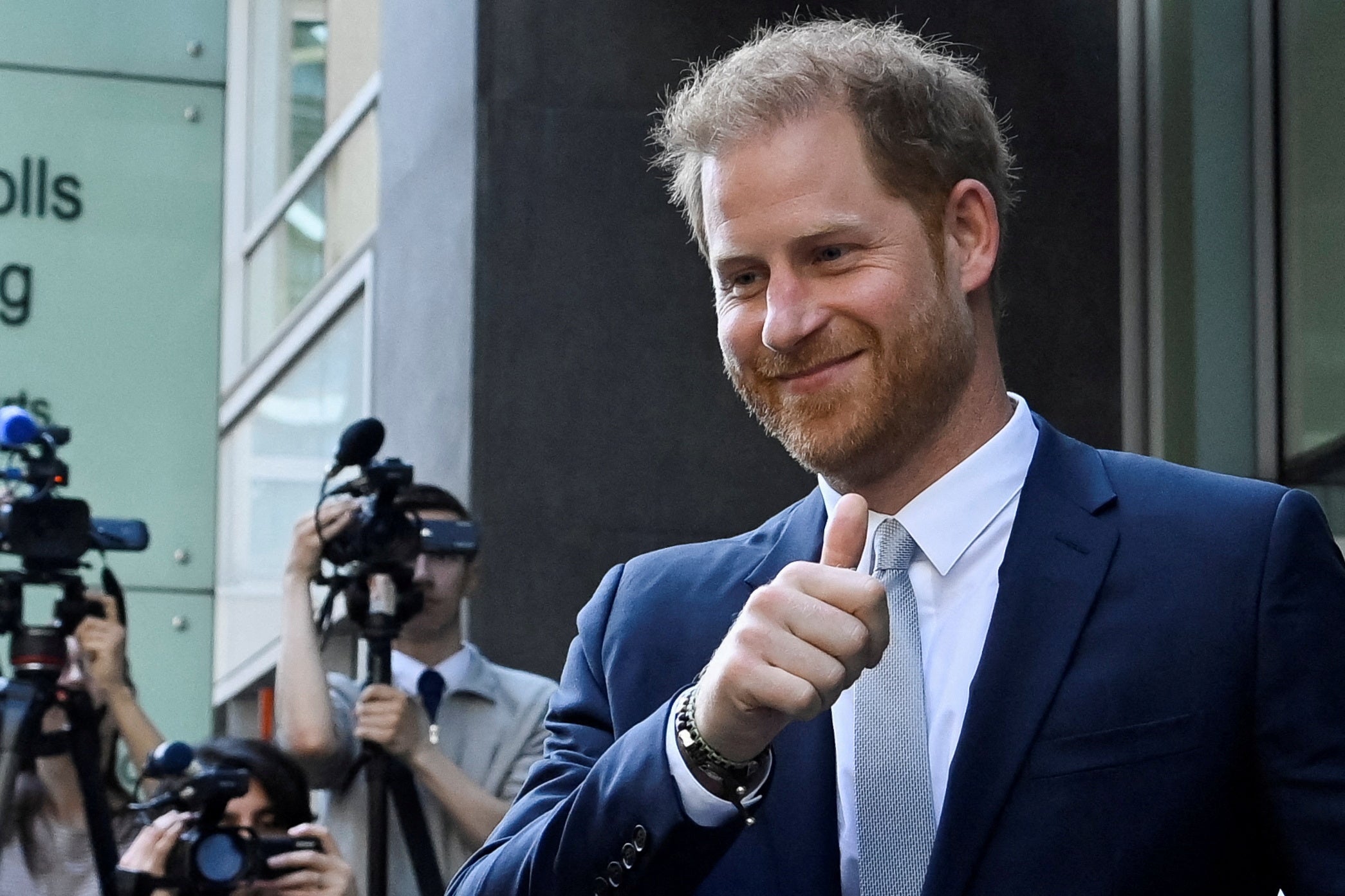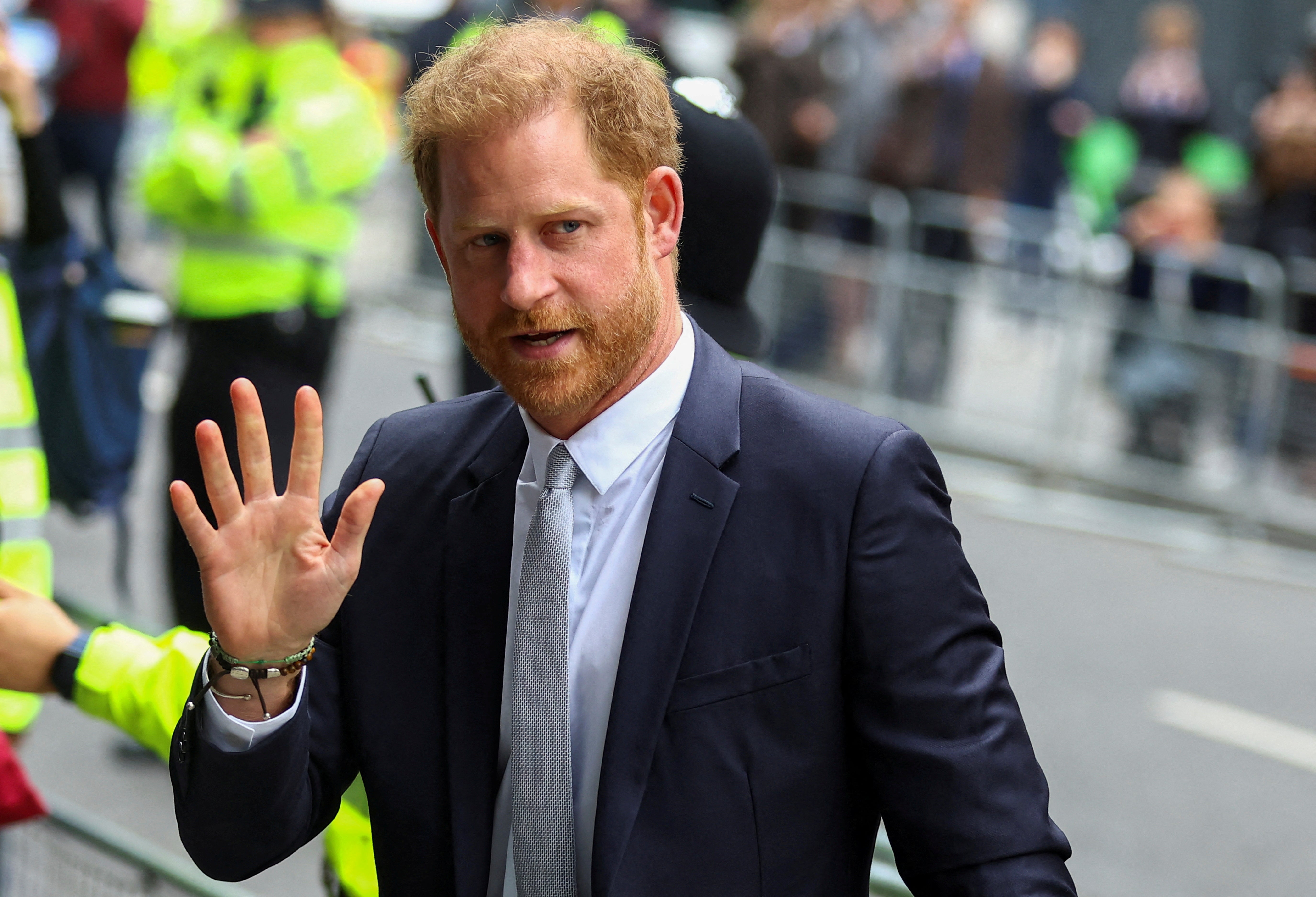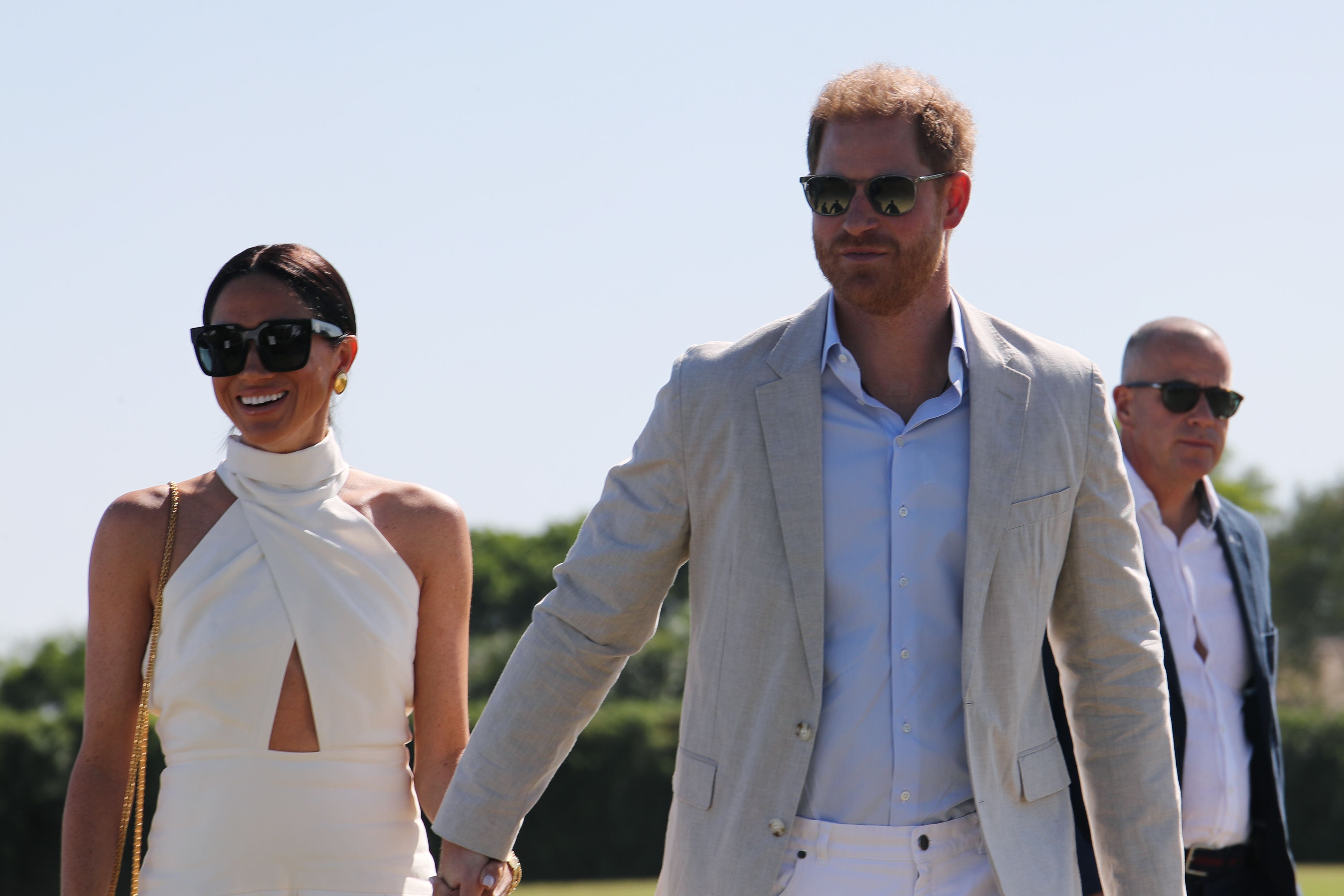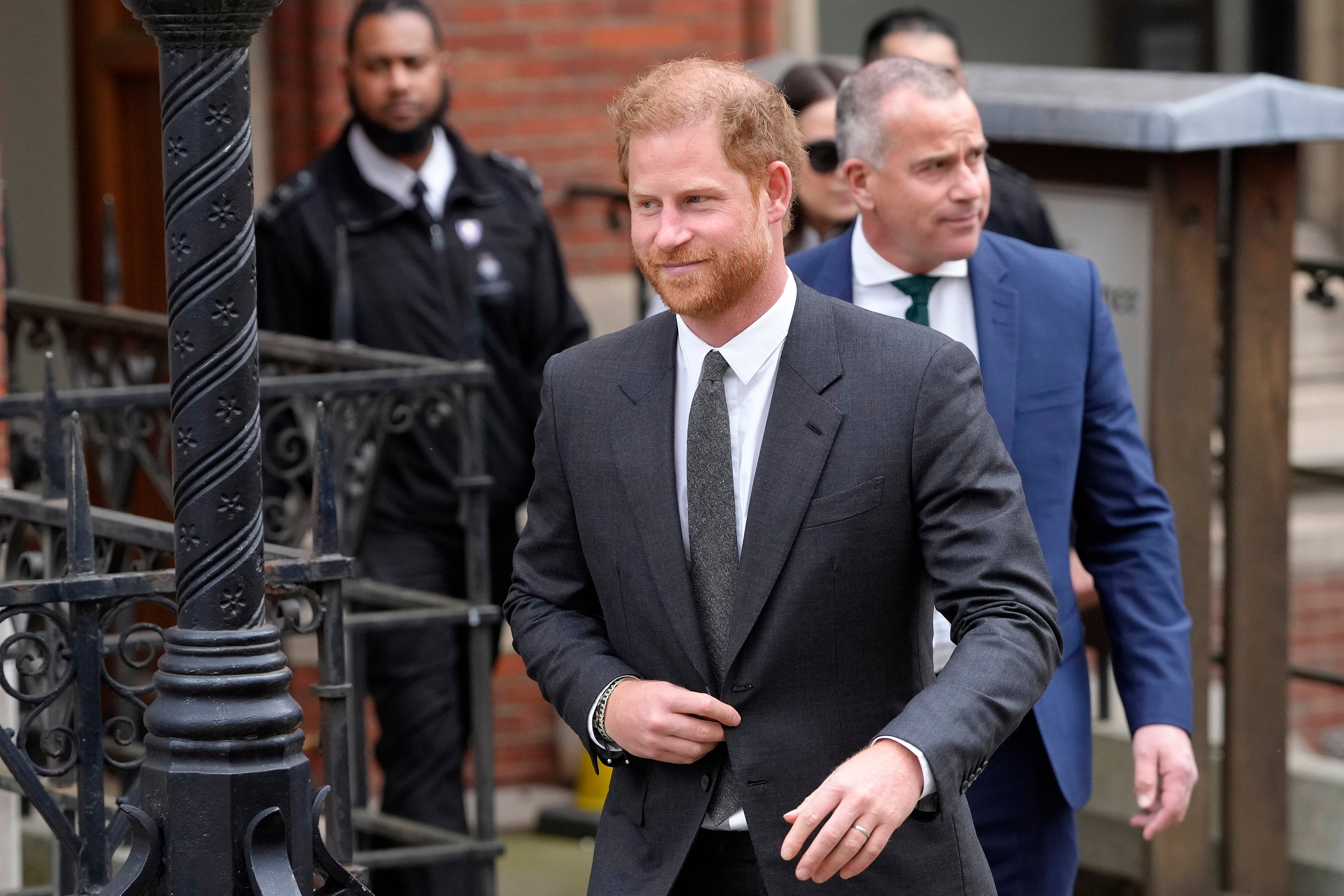All of Prince Harry’s ongoing legal battles explained from phone hacking to personal security
Harry has been involved in six legal cases – over security, privacy, alleged libel and alleged unlawful information-gathering
The Duke of Sussex has won his latest legal skirmish in his battle against the Sun publisher, after the High Court rejected delaying a trial that has been scheduled for next January.
Prince Harry alleges he was targeted by journalists and private investigators working for News Group Newspapers (NGN) over the course of nearly two decades.
Despite a judge rejecting the publisher’s application to hold a preliminary trial, the royal may be forced to settle his claims because of the risks of high legal costs.
It comes just days after the 39-year-old prince lost his latest round in his case against the Home Office, after he was denied an initial attempt to appeal against a High Court decision which supported a reduction in his personal security arrangements.
His lawyers had argued he was being treated “less favourably” in the decision by the Executive Committee for the Protection of Royalty and Public Figures (Ravec) in 2020, which was made after he and his wife Meghan Markle decided to step back as working royals and relocate to the US.

However, a ruling by retired High Court judge Sir Peter Lane on 28 February rejected Prince Harry’s case, concluding that Ravec’s approach was not irrational nor procedurally unfair. His bid to appeal has also been rejected, with the prince ordered to pay 90 per cent of the Home Office’s legal costs.
It is one of a series of recent High Court cases brought forward by the prince. Last year, he won a case against Mirror Group Newspapers (MGN) over a phone hacking claiming. And in January, the duke decided to withdraw libel action against Associated Newspapers Limited (ANL).
Here we take a look at the legal cases the duke has been involved in recently:
Privacy claim against Splash News and Picture Agency
In May 2019, Harry accepted substantial damages and an apology from a news agency that took pictures of his home in the Cotswolds from a helicopter.
Harry settled privacy and data protection claims against Splash News and Picture Agency over photographs “of and into the living area and dining area of the home and directly into the bedroom”.
The court heard Splash agreed to pay damages and legal costs.
Legal action against the Home Office
The duke brought legal action against the Home Office over the security arrangements for himself and his family when they are in the UK.
He challenged the February 2020 decision of the Executive Committee for the Protection of Royalty and Public Figures (Ravec) – which falls under the remit of the Home Office – over his security, after being told he would no longer be given the “same degree” of personal protective security when visiting.
The duke’s legal team argued that the security arrangements set out in a letter from Ravec, and their application when he visited the UK in June 2021, were invalid due to “procedural unfairness”, and there will be a full High Court hearing to review the duke’s claim.

However, retired High Court judge Sir Peter Lane rejected the duke’s case, concluding that Ravec’s approach was not irrational nor procedurally unfair.
In his 52-page partially redacted ruling issued on 28 February this year, he said the prince’s lawyers had taken “an inappropriate, formalist interpretation of the Ravec process”.
“The ‘bespoke’ process devised for the claimant in the decision of 28 February 2020 was, and is, legally sound,” he added.
On 15 April, he lost his initial bid to appeal and has now been ordered to pay 90 per cent of the Home Office’s legal costs, with his spokesperson confirming that he now hopes to appeal directly to the Court of Appeal.
Libel claim against Associated Newspapers Limited (ANL)
The duke brought a libel claim against ANL – the publisher of the Daily Mail and The Mail On Sunday – over an article about his case against the Home Office.
The story was published online and in the newspaper in February 2022 under the headline: “Exclusive: How Prince Harry tried to keep his legal fight with the government over police bodyguards a secret… then – just minutes after the story broke – his PR machine tried to put a positive spin on the dispute”.
Justin Rushbrooke KC, for Harry, had said the Mail On Sunday article “purported to reveal, in sensational terms” that information from court documents filed by the duke “contradicted public statements he had previously made about his willingness to pay for police protection for himself and his family whilst in the UK”.
ANL contested the claim, arguing the article expressed an “honest opinion” and did not cause “serious harm” to his reputation.
The civil claim had been heading towards an estimated three-day trial scheduled for May this year, but in January this year, the duke decided to withdraw the libel claim.

Alleged unlawful information gathering at Associated Newspapers Limited (ANL)
Prince Harry is one of seven people, also including David Furnish, Sadie Frost, Liz Hurley and Sir Simon Hughes, who have brought legal action against ANL over denied allegations it carried out or commissioned unlawful information gathering.
The allegations include hiring private investigators to place listening devices inside cars, “blagging” private records and accessing and recording private phone conversations.
ANL, which “firmly” denies the allegations, asked a judge to rule in its favour without a trial, arguing the legal challenges against it were brought “far too late”.
A hearing is expected this year.
Alleged unlawful information gathering at Mirror Group Newspapers (MGN)
The Duke of Sussex and others sued Mirror Group Newspapers (MGN) over alleged unlawful information gathering are waiting to find out whether they will win their case.
The prince brought the case against MGN for damages, claiming journalists at its titles – the Daily and Sunday Mirror and Sunday People – were linked to methods including phone hacking, so-called “blagging” or gaining information by deception, and use of private investigators for unlawful activities.
His case was heard alongside similar claims by actor Michael Turner, who is known professionally as Michael Le Vell and best known for playing Kevin Webster in Coronation Street, actress Nikki Sanderson and comedian Paul Whitehouse’s ex-wife Fiona Wightman.
The allegations covered a period from as early as 1991 until at least 2011, the court was told. Harry faced eight hours of questioning over two days during a witness box appearance that drew the attention of the world’s media.
On 15 December 2023, High Court judge Mr Justice Fancourt ruled “extensive” phone hacking had taken place at MGN. He also said there had been so-called “blagging” or gaining information by deception, and use of private investigators for unlawful activities.

Prince Harry was awarded £140,600 in damages over 15 of the 33 MGN articles he complained about. A further 115 articles were in the duke’s claim, which could have been subject to a further trial.
But on 9 February this year, it was confirmed that a settlement had been reached with MGN over the remaining parts of the claim. This included an interim payment towards costs of £400,000, the prince’s barrister said.
Alleged unlawful information gathering at News Group Newspapers (NGN)
Harry is suing News Group Newspapers (NGN), publisher of The Sun and the now-defunct News Of The World, over alleged unlawful information gathering. The duke alleged he was targeted by journalists and private investigators working for the papers.
At a hearing in April 2023, NGN asked Mr Justice Fancourt to throw out the duke’s case, arguing it was brought too late because he should have known sooner he had a potential claim.
In a ruling in July 2023, the judge concluded that Harry cannot bring his claim relating to phone hacking, but that his claim over other allegations – including use of private investigators – could go ahead to a trial.
In a small victory for the prince, a judge rejected the publisher’s bid to delay the trial, which has been scheduled for January 2025, by holding a preliminary trial to decide whether the cases against it have been brought too late.
In a ruling on 19 April, Mr Justice Fancourt dismissed NGN’s request, meaning some cases will proceed towards a trial in eight months’ time if they are not settled out of court before then.
The judge said there was a “plainly considerable risk” of a preliminary trial “increasing costs overall and delaying” a full trial by up to two years.
“That is unsatisfactory,” he said.



Bookmark popover
Removed from bookmarks